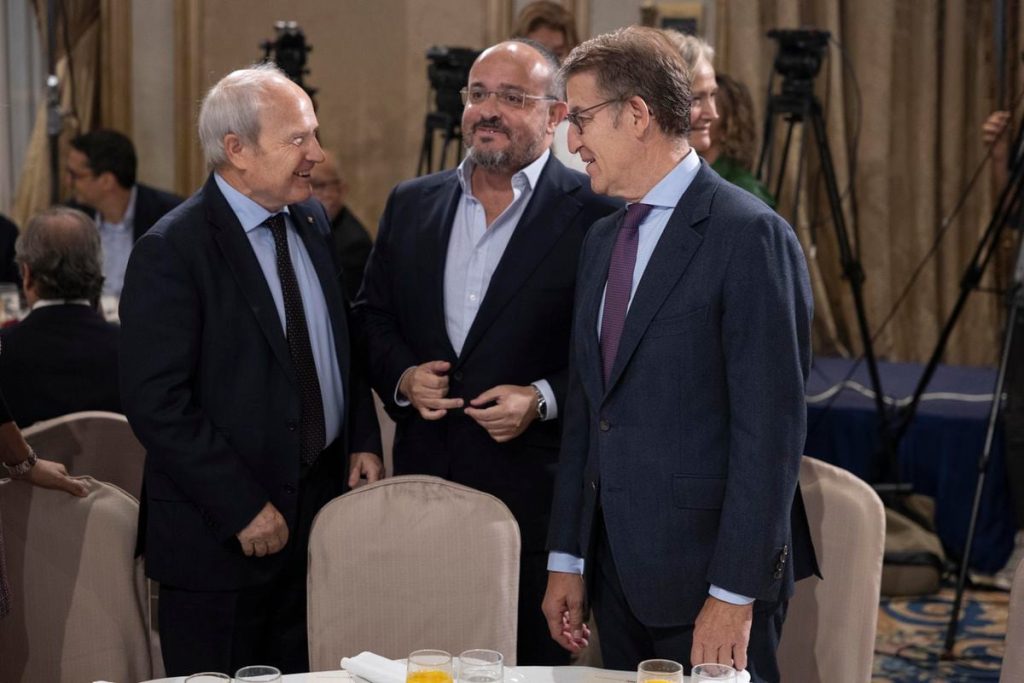With 14 days left before the parties have to present their lists for the elections on May 12 in Catalonia, all the main formations have already designated their candidates – except for the Popular Party, where the mystery remains. Alberto Núñez Feijóo has yet to clarify who will be the leader for the upcoming elections, where the Popular Party is expected to gain about 10 seats after the decline of Ciudadanos. Despite the positive outlook for the PP in the polls, Feijóo’s uncertainty continues to overshadow the pre-campaign period, while other parties have already begun to clash. Under internal pressure and amid the uncertainty, the PP leader has decided to take a step forward in his run for the elections on the 12th of May, meeting with the party’s spokesman Alejandro Fernández to discuss the current political context in Catalonia and Spain.
The national leadership of the PP had initially used the negotiation with Ciudadanos as an excuse for not naming a candidate yet, claiming that their efforts were focused on a joint list with Ciudadanos and that the candidate choice depended on the outcome of the negotiations. However, following the breakdown of the talks, the party is now in a “second phase” and looking to hear from party members in Catalonia to choose the most suitable candidate. The decision on the candidacy has to come from the colleagues in Catalonia, according to Borja Sémper, a few hours before Feijóo and Fernández’s meeting. The options on the table include Fernández and Euro MP Dolors Montserrat. Feijóo had postponed the regional congress in Catalonia until after the European elections in June, as the elections were originally scheduled for 2025. The early election caught the party leader unprepared.
As Génova continues to delay the candidate announcement, members of the Catalan PP express their concerns that time is running out and stress the importance of determining the candidate’s name to maximize the pre-campaign period. There is also division within the Party Popular at the regional level, with some supporting Fernández and others respecting the president’s decision. Meanwhile, Fernández’s circle remains cautious, patient, and discreet. In addition to the candidate, the PP also needs to defend its own project for Catalonia, which has been overshadowed by the controversy surrounding the absent candidate. The party intends to promote a program with a different sensitivity, akin to Feijóo’s respectful and territorial approach, which contrasts with Fernández’s more aggressive rhetoric as the spokesperson in Parliament. Feijóo’s continuity or imminent confirmation adds complexity to the race for the regional elections.
Despite the uncertainty regarding the candidacy and potential impact on the campaign, Feijóo’s leadership and the Popular Party’s trajectory remain crucial in the run-up to the elections. The party’s performance in Catalonia will be closely watched, especially as it aims to regain ground following the decline of Ciudadanos. While the delay in naming the candidate may have caused some internal friction, the party’s ability to present a united front and a coherent platform will be key to winning over voters. As the deadline for submitting the lists approaches, the party must act decisively and effectively to ensure a strong showing in the upcoming elections.


